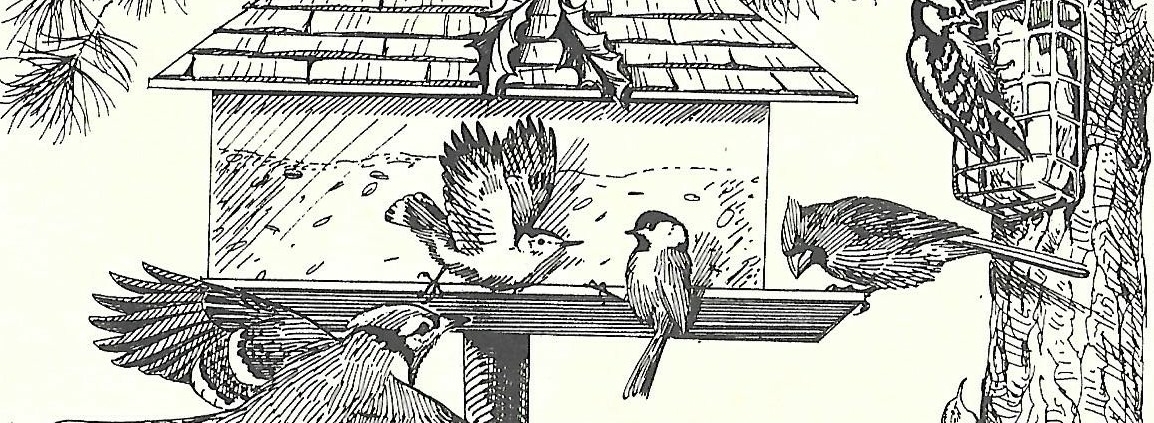As the Crow Flies
Keep Your Seed Dry And Your Bird Feeders Clean
Story and illustration by Doug Pifer
Feeding the birds has helped people young and old to get through this pandemic winter. For many home-bound Americans, this backyard hobby has helped lighten the loneliness and depression brought about by the isolation of the pandemic quarantine. Some nursing home residents I know consider watching the antics of birds and squirrels at the feeders outside their windows the high point of their day. Some of them had no interest in birds until I hung a feeder outside their window. Now they have learned to recognize different birds by species, and in some cases as individuals. One lady has even given “her” birds and squirrels individual names.
But in recent months, all these bird feeders may have brought the birds an epidemic of their own. Citizens across the country have been finding dead or dying birds in their yards. Experts have linked these deaths to diseases the birds picked up at backyard feeding stations.
If not properly maintained, bird feeders can create an environment that encourages the spread of disease and parasites. When bird seed in feeders gets wet, it will soon grow fungus and bacteria, potentially spreading disease among any birds that visit there. The same thing happens when spilled seed accumulates under the feeders.
Jennifer Riley, DVM, is the chief veterinarian at Blue Ridge Wildlife Center in Millwood Virginia. In the winter 2021 edition of her organization’s newsletter, The Ridge Line, Riley reports a recent dramatic increase in sick mourning doves and house finches brought to the center. Most of them, she believes, have picked up fungal, viral, and parasitic infections at bird feeders.
Riley reports many birds exhibit swollen eyelids with a crusty discharge. This highly contagious form of conjunctivitis progresses to temporary blindness. Infected birds have trouble finding food and escaping danger in the wild, but they soon recover if rescued and kept isolated from each other at the center. And, doves and finches have come to the center with trichomoniasis and Avian parvovirus, two deadly and highly contagious illnesses. Certain other diseases birds get from unsanitary feeders are zoonotic, meaning they can be transmitted not just among the birds, but from birds to humans.
The solution, Riley concludes, is to clean bird feeders regularly with soap and water, followed by a one part bleach and 9 parts water solution. Then rinse the feeder and allow it to dry thoroughly before refilling.
Feeders made of non-porous material — metal or plastic — are much easier to sanitize than wood. Clean bird feeders every two weeks. In summer, wash hummingbird feeders with soap and water every three days.
Should you find a sick or dead bird near your bird feeders, stop feeding the birds for three weeks while you disinfect and clean all feeders and bird baths. Make a habit of raking up and discarding any spilled food under your feeders, using a dog poop scooper.
To learn more about how to maintain clean bird feeders, waterers, and housing, check out Cornell University Laboratory of Ornithology’s website www.allaboutbirds.org.










